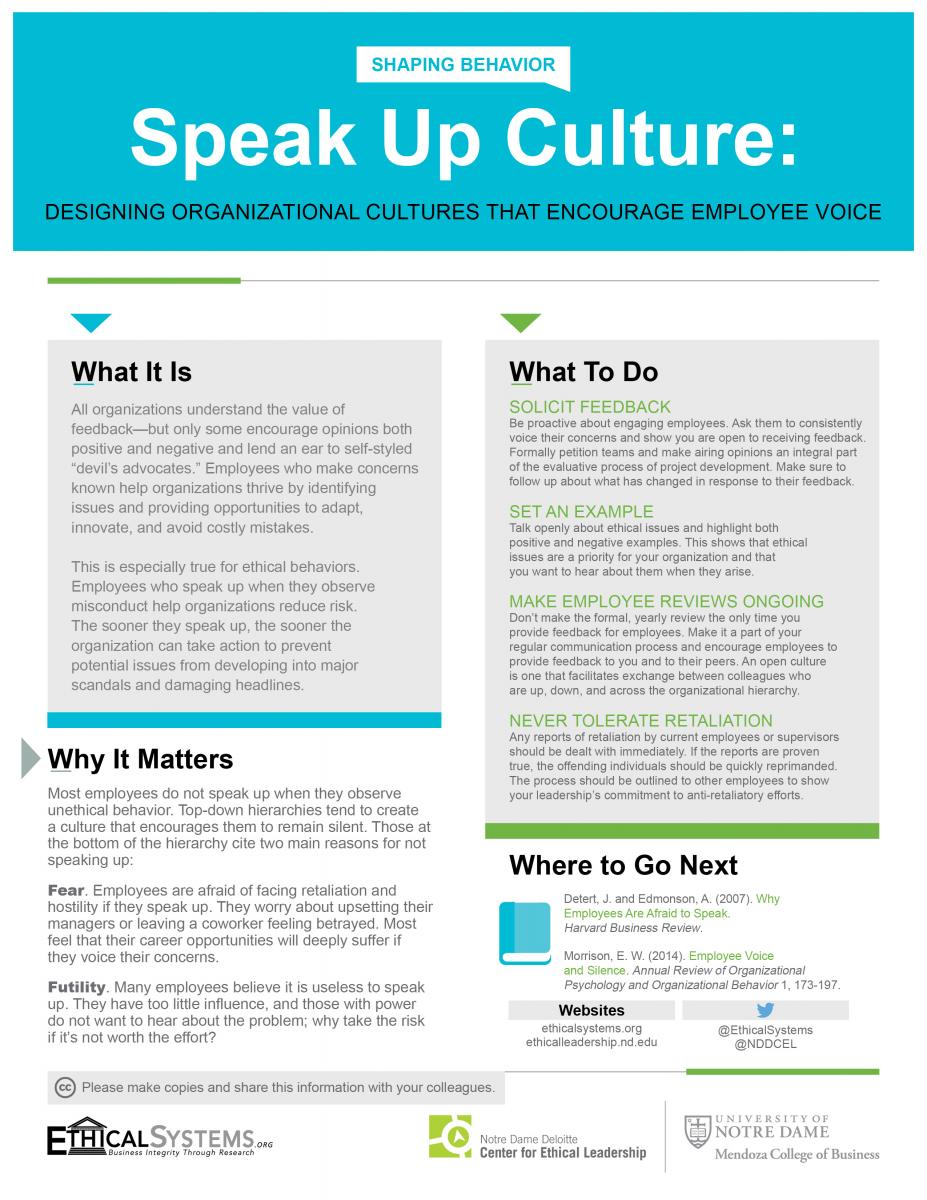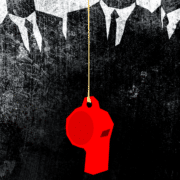Whistleblower: Companies Need to Encourage Speak-Up Culture
 Maria Lemos Stein recently interviewed noted consultant Wendy Addison, Founder and Chief Executive of SpeakUp SpeakOut, in The Wall Street Journal. Addison is also known for her personal role as a whistleblower on fraud and corruption in 2000 regarding LeisureNet Ltd., whose joint chief executives were convicted of fraud in one of the biggest corporate scandals in South Africa
Maria Lemos Stein recently interviewed noted consultant Wendy Addison, Founder and Chief Executive of SpeakUp SpeakOut, in The Wall Street Journal. Addison is also known for her personal role as a whistleblower on fraud and corruption in 2000 regarding LeisureNet Ltd., whose joint chief executives were convicted of fraud in one of the biggest corporate scandals in South Africa
Addison promotes a speak up culture as the method by which companies develop an environment where problems are acknowledged and solved transparently, and before a problem becomes widespread. That way, she asserts, companies avoid the fines, reputation loss, and other negatives associated with more public scandal. Further, the person or group reporting the issue does not face internal retribution because speaking up is encouraged at all levels of the organization.
Among the choice quotes from the interview, we select three that touch on current industry concerns. We urge you to read the interview in its entirety online.
Quote 1: As good as loyalty is, we need to consider that in terms of speaking up there’s a much more important value to put in front of that–and that’s fairness. It’s kind of rejigging the hierarchy of one’s values.
This is important when we consider that people who raise concerns are doing so because they believe it is the right thing to do; not because they may personally benefit but because they want the company to benefit. Instead of viewing internal reporting as disloyal, it is actually a demonstration of employee integrity and their loyalty to the long-term goals of the organization.
Quote 2: The issue is we find it hard to listen to bad news that can trigger our own sense of self-efficacy, especially if you are a leader…Organizations are reluctant to invest in mid-management and leaders’ development, especially when it comes to being the recipient of bad news.
Key to any company is the investment of resources (time, training, consulting, etc.) at all levels of the organization. If those in middle level management are not folded into the professional and personal development around ethical leadership offered to those in upper management, they are left to confront ethical dilemmas with little or no structure or preparation. A speak up culture establishes more incentive for managers to understand and contextualize behavior and a process by which to address the issues raised.
Quote 3: We ought to be careful of the culture of tick-boxing. We have to educate employees…and it has to be about understanding the vulnerability to situations and context. Compliance officers and legal counsels are reluctant to engage with ‘speak up and listen up,’ and when they do it is in very technical terms. We have to understand we’re talking about behavior and not mechanics.
This is perhaps the most prescient. A check-the-box mentality only leads to cultures of compliance, as opposed to cultures of ethics. Promoting ethical behavior requires broader understanding of human responses to environments and stimuli. When we consider that often times misconduct is a result of the culture of an organization, it becomes much easier to understand how solutions designed to promote open interactions, and what Addison calls “courageous conversations,” shape climate and overall corporate integrity.
For more on a speak up culture, we recommend checking out this video on Speak Up Culture from our Ethics By Design conference:
We also have our new, free Behavioral Science One Sheet on Speak Up Culture that you can download and share with your team.










